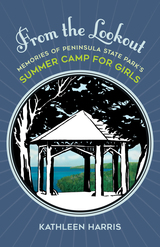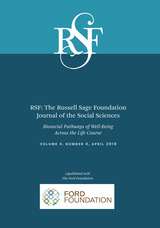2 books by Harris, Kathleen

From the Lookout
Memories of Peninsula State Park’s Summer Camp for Girls
Kathleen Harris
Wisconsin Historical Society Press, 2020
For every summer from 1916 to 1948, Camp Meenahga, on the picturesque shoreline of Lake Michigan in Door County’s Peninsula State Park, hosted young girls and women from across the United States and Canada. From July to September each year, campers slept in canvas tents, told stories beside a massive stone fireplace, swam, canoed, sailed, hiked, rode horses, and watched the sunset from the Lookout, a gazebo with a spectacular view of the waters of Green Bay.
With big ideas, little money, and no experience, Alice Orr Clark and Frances Louise “Kidy” Mabley founded Meenahga as a place for young women to refine their manners, enjoy outdoor leisure activities, and learn woodcraft. From the Lookout is an account of these experiences, a history of Camp Meenahga informed by what campers, counselors, and others left behind, including letters home, notes from Clark and Mabley, and many pages from the camp yearbook and newsletter Pack and Paddle.
Brimming with nostalgia, From the Lookout brings to life the sights, sounds, and smells of an idyllic summer retreat, one that long after it closed lived on as a place of respite in the memories of those who knew and loved it best.
With big ideas, little money, and no experience, Alice Orr Clark and Frances Louise “Kidy” Mabley founded Meenahga as a place for young women to refine their manners, enjoy outdoor leisure activities, and learn woodcraft. From the Lookout is an account of these experiences, a history of Camp Meenahga informed by what campers, counselors, and others left behind, including letters home, notes from Clark and Mabley, and many pages from the camp yearbook and newsletter Pack and Paddle.
Brimming with nostalgia, From the Lookout brings to life the sights, sounds, and smells of an idyllic summer retreat, one that long after it closed lived on as a place of respite in the memories of those who knew and loved it best.
[more]

RSF
The Russell Sage Foundation Journal of the Social Sciences: Biosocial Pathways of Well-Being Accross the Life Course
Thomas W. McDade
Russell Sage Foundation, 2018
Poverty, discrimination, and other social and economic inequalities have serious consequences for individuals’ physical and mental well-being. Recently, social scientists have collaborated with biological scientists to better understand the mechanisms that reproduce social stratification within and across generations. In this issue of RSF, edited by anthropologist Thomas McDade and sociologist Kathleen Mullan Harris, and a multi-disciplinary group of scholars integrate theory, data, and methods from the social and biological sciences to advance our understanding of how social and biological processes interact to shape individuals’ health outcomes and life chances.
Several articles explore the effects of disadvantage and discrimination on individuals’ health. Douglas Massey and colleagues find that residential segregation and concentrated poverty—which disproportionately affects African Americans—contribute to more rapid cellular aging, a condition associated with a higher risk of disorders such as diabetes and heart disease. Bridget Goosby and colleagues track the sleep patterns of adolescents and find that compared to their white peers, African American and biracial youth who report experiencing frequent discrimination have worse sleep, which is associated with longer-term negative physical and mental health outcomes.
Other contributors explore the extent to which social and family environments influence biological processes. Yang Qu and colleagues study the cognitive development of Mexican American youth, focusing on the hippocampus, a region of the brain that produces improved memory and learning. They find that teens who were able to navigate between the cultural values of their parents and fitting in with their peers had different hippocampus volume and higher academic achievement. Other researchers explore the relationship between individuals’ genes and their environments. Melinda Mills and colleagues examine the role of genes in reproductive behavior. They find that while social and behavioral factors are strongly associated with when mothers first give birth and how many children they have, genetic factors are related to other fertility traits, such as childlessness and menopause.
The findings in this issue demonstrate the value of integrating the social and biological sciences for understanding how biological mechanisms influence, and are influenced by, socioeconomic conditions and lay the foundation for further advances in biosocial scholarship.
Several articles explore the effects of disadvantage and discrimination on individuals’ health. Douglas Massey and colleagues find that residential segregation and concentrated poverty—which disproportionately affects African Americans—contribute to more rapid cellular aging, a condition associated with a higher risk of disorders such as diabetes and heart disease. Bridget Goosby and colleagues track the sleep patterns of adolescents and find that compared to their white peers, African American and biracial youth who report experiencing frequent discrimination have worse sleep, which is associated with longer-term negative physical and mental health outcomes.
Other contributors explore the extent to which social and family environments influence biological processes. Yang Qu and colleagues study the cognitive development of Mexican American youth, focusing on the hippocampus, a region of the brain that produces improved memory and learning. They find that teens who were able to navigate between the cultural values of their parents and fitting in with their peers had different hippocampus volume and higher academic achievement. Other researchers explore the relationship between individuals’ genes and their environments. Melinda Mills and colleagues examine the role of genes in reproductive behavior. They find that while social and behavioral factors are strongly associated with when mothers first give birth and how many children they have, genetic factors are related to other fertility traits, such as childlessness and menopause.
The findings in this issue demonstrate the value of integrating the social and biological sciences for understanding how biological mechanisms influence, and are influenced by, socioeconomic conditions and lay the foundation for further advances in biosocial scholarship.
[more]
READERS
Browse our collection.
PUBLISHERS
See BiblioVault's publisher services.
STUDENT SERVICES
Files for college accessibility offices.
UChicago Accessibility Resources
home | accessibility | search | about | contact us
BiblioVault ® 2001 - 2024
The University of Chicago Press









